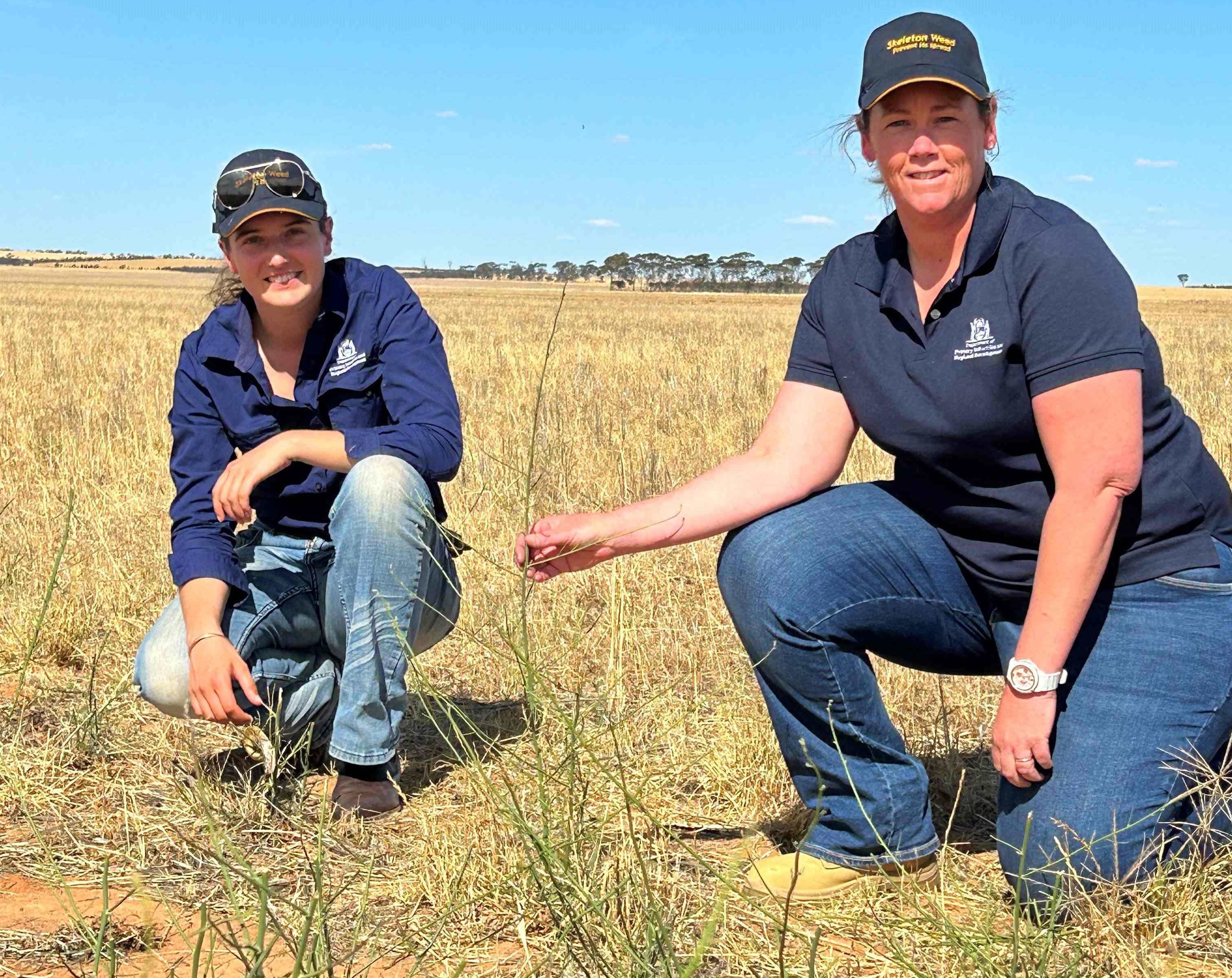
The annual campaign involves paddock searches covering more than 800 properties across more than 400,000 hectares.
The declared weed – with its striking yellow flower and skeleton-like stems – competes with crops for nitrogen and soil moisture, impacting yields and quality.
The summer searching program is led by the Department of Primary Industries and Regional Development (DPIRD) in collaboration with seven Local Action Groups.
DPIRD project manager Martin Atwell said the program focused on known infested properties and would be complemented by additional targeted surveillance, aimed at finding new infestations that landholders may not be aware of.
“The targeted surveillance program will look to search 46,000 hectares, through a combination of ground searching and drones,” Mr Atwell said.
“Landholders in targeted areas will be able to participate in surveillance but we remind all farmers to be vigilant.
“Early detection of skeleton weed provides growers with much better scope for eradication.
“Harvest is a good time to be on the lookout for this weed. Skeleton weed has upright and usually leafless stems, which gives the appearance of the skeleton of a plant.
“It is most recognisable when flowering during summer and autumn, when it has distinctive bright yellow daisy flowers.”
The Skeleton Weed Program’s activities are funded by growers through the Grains, Seeds and Hay Industry Funding Scheme.
Initiatives include the skeleton weed management guide, which has been recently updated to give growers the latest information to manage and eradicate skeleton weed infestations on their properties.
Funds are also directed to research investments to help reduce overall skeleton weed infestations, including pollen monitoring and an ongoing initiative examining biocontrol options.
The program’s work also includes projects on herbicide trials, precision mapping and historical data analysis.
For more information on the Skeleton Weed Program, including the management guide and the annual report, visit www.agric.wa.gov.au/skeletonweed.
Any suspect skeleton weed plants should be reported to DPIRD using the MyPestGuide Reporter app or the department’s Pest and Disease Information Service on (08) 9368 3080 or padis@dpird.wa.gov.au.


